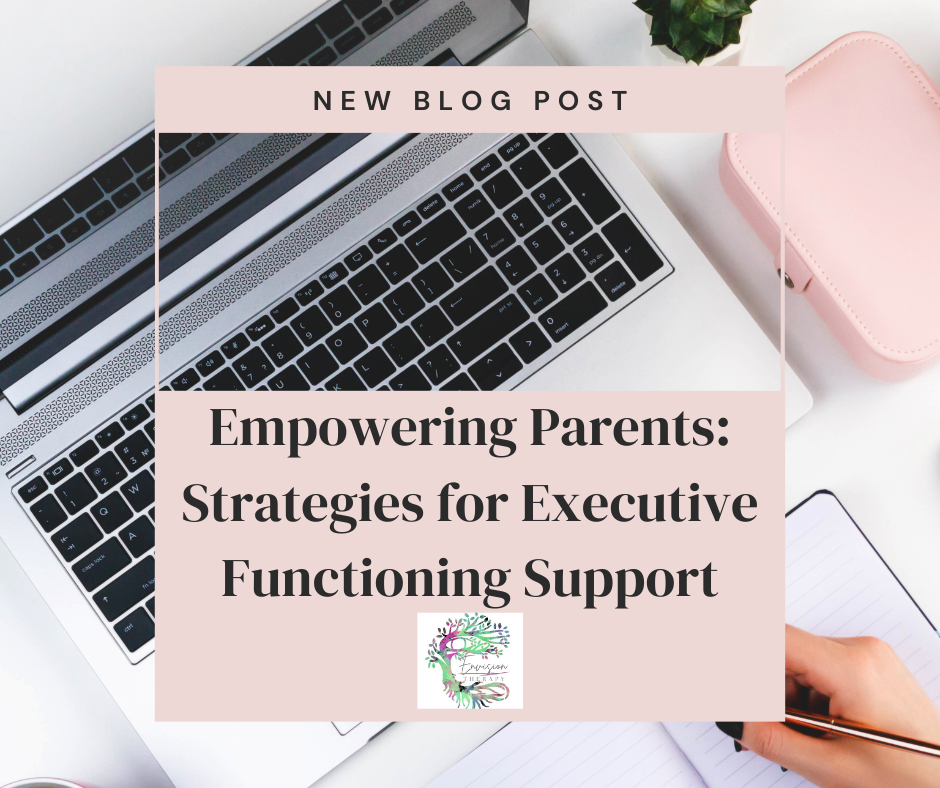Juggling daily routines and academic demands can be challenging for any child, and as a parent, understanding and addressing these difficulties are vital for your child’s growth. In this guide, we will dive into the everyday struggles children may face with organization, planning, and time management – commonly known as executive functioning issues. More importantly, we’ll equip you with practical insights, strategies, and actionable tips to make this journey smoother for both you and your child. Difficulties with organization, planning, and time management can impact daily routines and academic performance. As a parent, understanding and addressing these challenges are crucial for supporting your child’s development and success.
Understanding Executive Functioning:
At the core of executive functioning are cognitive processes responsible for managing, organizing, and regulating various tasks. These processes include working memory, cognitive flexibility, and inhibitory control. When these functions encounter challenges, children may struggle with tasks requiring planning, initiation, and completion.
Think of executive functioning as the brain’s superhero squad responsible for tasks like remembering information, staying organized, and managing time. When these skills face challenges, it’s like the superhero team taking a day off, leaving your child to navigate the world without their trusty sidekicks.
Recognizing the Signs:
To effectively support your child, it’s essential to recognize the signs of executive functioning issues. Common indicators include difficulty with time management, forgetfulness, disorganization, and challenges in initiating tasks. Identifying these signs early allows for timely intervention.
Imagine a morning routine where finding a matching pair of socks becomes an expedition or a homework session that turns into a marathon. These could be signs that your child might be facing executive functioning challenges. Forgetfulness, disorganization, and difficulty starting tasks are everyday struggles that may seem trivial but can significantly impact your child’s well-being.
Impact on Daily Life:
Executive functioning issues extend beyond the classroom, affecting daily routines and interpersonal relationships. From homework assignments to household chores, these challenges can create stress for both parents and children. Acknowledging and addressing these difficulties is the first step toward fostering a supportive environment.
These challenges extend beyond academic performance, influencing daily activities and personal relationships. From getting ready in the morning to completing chores, executive functioning hiccups can create stress for both you and your child. Recognizing and addressing these hurdles is the first step to creating a supportive environment.
Strategies for Parents:
- Establish Routines:
- Create a structured daily routine to provide a sense of predictability.
- Clearly outline expectations for tasks and responsibilities.
- Visual Aids and Timers:
- Utilize visual aids, such as charts and schedules, to enhance organization.
- Set timers for specific tasks to improve time management.
- Break Down Tasks:
- Divide complex tasks into smaller, manageable steps.
- Celebrate achievements at each step to boost motivation.
- Provide Clear Instructions:
- Clearly communicate expectations and instructions.
- Use visual or written cues to enhance understanding.
- Encourage Self-Advocacy:
- Teach your child to recognize their challenges and seek assistance.
- Foster a sense of independence by encouraging them to communicate their needs.
Navigating Academic Challenges:
Executive functioning issues can make the academic journey bumpy, but with collaborative efforts between parents and teachers, the road becomes smoother. Open communication is key to creating a supportive learning environment.
Supporting Homework Completion:
Homework can become a battlefield for both parents and children. Create a quiet and organized workspace, break down assignments into manageable chunks, and collaborate with teachers to explore alternative assessment methods that better suit your child’s strengths.
Building a Support Network:
Connect with other parents facing similar challenges and professionals who understand executive functioning issues. Share experiences, seek advice, and stay informed about the latest research and interventions. Building a supportive community can alleviate the challenges both you and your child may face.
Executive functioning issues may pose challenges, but they are manageable with practical strategies and a supportive environment. Your involvement and understanding as a parent can make a significant difference in your child’s academic journey. By implementing the suggested strategies and fostering a collaborative relationship with educators, you can unlock your child’s potential and empower them to navigate the complexities of executive functioning challenges.
Discover the keys to unlocking your child’s potential amidst executive functioning challenges by working with Elizabeth. Explore practical strategies and connect with a community that understands. Join us on this empowering journey to create a supportive environment for your child’s academic success.
TLDR: Explore effective strategies for parents to address executive functioning issues affecting their child’s organization, planning, and time management. Learn to recognize signs, implement practical solutions, and foster a supportive environment at home and in the academic setting.

